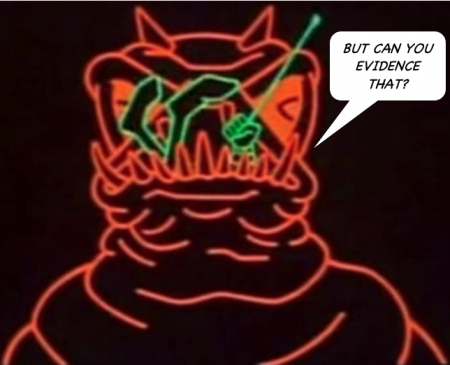Audit paradox
Büchstein’s audit paradox observes that, should you use workflow tools, legaltech and automation to carry out rudimentary tasks they will, by their nature, force you into sub-optimal behaviour patterns. In other words a tool that is meant to save work and reduce anxiety actually creates more of it.
|
JC pontificates about technology
An occasional series. 
|
Congratulations: you have implemented a new technology solution to help you regularise your review and completion of confidentiality agreements. It has been calculated, costed, banked and factored into next year’s legal budget that this tool will[1] save the equivalent of 1.5 head counts over the forthcoming year, a “win” that has earned the legal operations team an industry award from Steer! Monthly, the official periodical of Worshipful Guild of Steering Committee Members. Elsewhere, unobserved, the firm’s dark universe of infrastructural bureaucracy has silently whirred into action. Approval subroutines have fired and launched escalations for the spend on the software vendor; a militarised third party information security analytics surveillance drone has departed form the loading bay; and a platoon of internal audit marines has fetched up on the legal department foreshore armed with quarterly certifications of compliance with money-laundering regulations and documentation, governing law, and process agency policies.
The audit paradox is at the confluence of three streams of modern institutional thinking:
- The buttocractic oath: One’s first priority is to one’s own posterior. Primum nil errare: First, do no harm to your own career.
- Casanova’s advice: If in doubt, stick it in: it won’t do any harm to ask for contractual protections we don’t in point of fact, really need.
- The world consists of what can be measured: The ultra-reductionist view that as long as you can measure something you can control it, which bleeds into the converse, and entirely false, assumption, that if you can’t see it, it can’t be there.
Therefore an audit officer reminds us of the The Hitch-Hiker’s Guide to the Galaxy’s Ravenous Bugblatter Beast of Traal: a “mind-bogglingly stupid animal, it assumes that if you can’t see it, it can’t see you—daft as a brush, but very very ravenous”.
See also
References
- ↑ It absolutely won’t — you know that, I know that, everyone except the COO knows that — but this is not the point of the story here so bear with us.